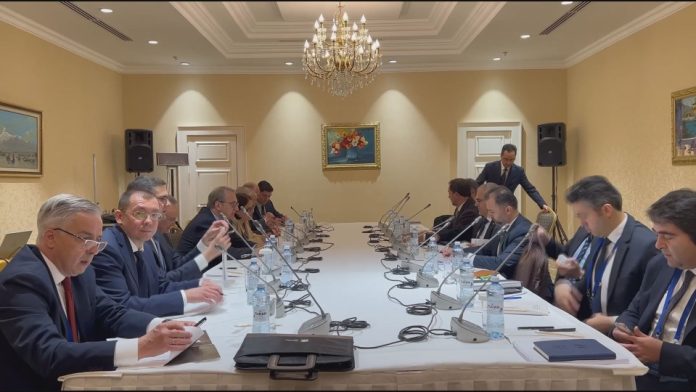ASTANA, June 21 (Reuters) – Kazakhstan, the longtime host of Syria peace talks between Russia, Turkey and Iran, surprising proposed ending the process on Wednesday, though Russia said the meetings could continue in another location.
Diplomats from the three countries met in the Kazakh capital Astana for the 20th time this week to discuss the situation on the ground, a roadmap to rebuild Turkey-Syria ties, Israeli attacks and a host of other issues.
Kazakhstan has hosted such meetings since 2017, with varying results. One of the biggest moves announced in Astana was the partition of Syrian territories into de-escalation zones overseen by different countries.
Jordanian Army Says It Downs a Drone Carrying Drugs Smuggled by Pro-Iran Militia Groups in Syria
But on Wednesday, Kazakh Deputy Foreign Minister Kanat Tumysh unexpectedly called for the conclusion of trilateral talks, saying their goal had been achieved.
“Syria’s gradual emergence from isolation in the region could be regarded as a sign that the Astana process has completed its task,” he told reporters.
“Taking into account Syria’s return into the Arab (nations) family, we propose officially declaring the 20th meeting under the Astana process the final one.”
This was clearly not the plan of the three negotiating parties, however, who said in a joint statement after the talks that the next meeting would take place later this year.
“We cannot say that the Astana process is over,” Russian negotiator Alexander Lavrentyev said. “… But if the Kazakh side has decided that they need to be moved to a different location, we will discuss that and pick one.”
Russia, Turkey and Iran could for example take turns hosting those meetings, he said.
OPINION: The Solution to the ‘Iran Problem’ is Regime Change
Prince Reza Pahlavi : ‘The Alternative to the Islamic Republic is the Iranian nation’
(Reporting by Olzhas Auyezov; Editing by Alex Richardson)


